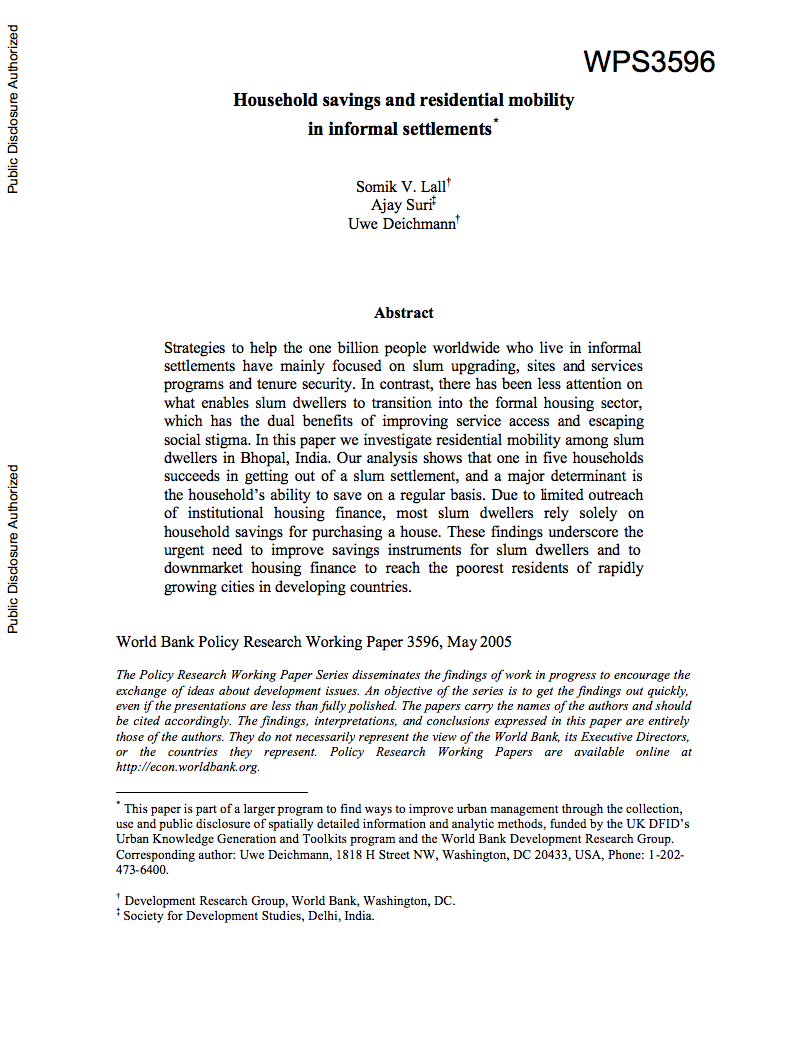Household Savings and Residential Mobility in Informal Settlements
Strategies to help the one billion people worldwide who live in informal settlements have mainly focused on slum upgrading, sites and services programs, and tenure security. In contrast, there has been less attention on what enables slum dwellers to transition into the formal housing sector, which has the dual benefits of improving service access and escaping social stigma. In this paper the authors investigate residential mobility among slum dwellers in Bhopal, India.


